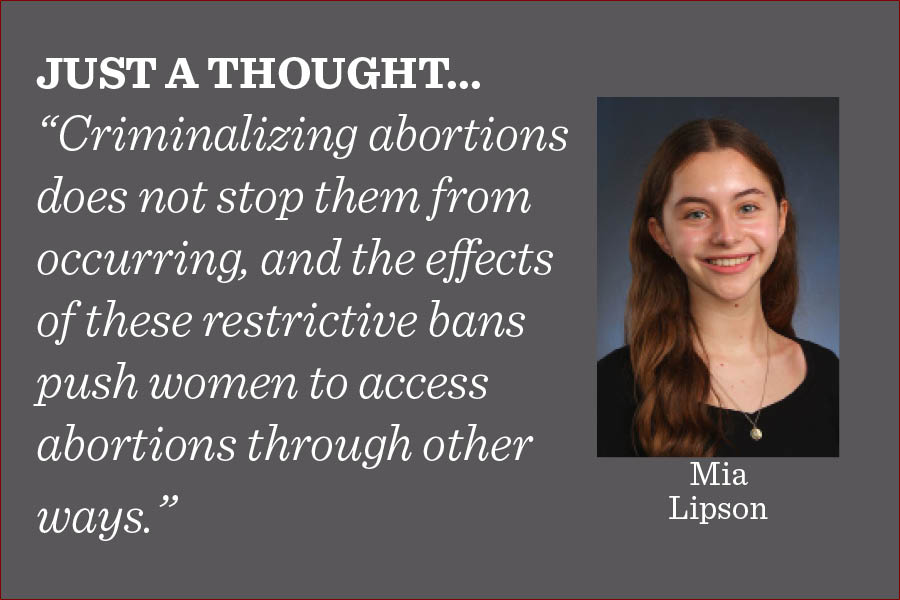Legalize abortion at the federal level
Midway staff
Criminalizing abortions does not stop them from occurring, and the effects of these restrictive bans push women to access abortions through other ways, such as extensive travel or unsafe and illegal procedures, writes Mia Lipson.
March 8, 2022
On Dec. 1, 2021, the Supreme Court heard arguments from the Center for Reproductive Rights in the Mississippi case Dobbs v. Jackson Women’s Health Organization, the first case to rule on pre-viability abortion since the 1973 landmark case Roe v. Wade that protects a woman’s right to choose.
As the precedent faces the risk of being overturned with the conservative Supreme Court majority, abortion should be legal at a federal level because if not, women will be forced to access it through more challenging routes.
Put into place Sept. 1, Texas law S.B. 8 prohibits abortion after a heartbeat is detected, after approximately six weeks of pregnancy. Turning to other measures, Texas residents have accessed abortions by traveling to Planned Parenthood locations in neighboring states, which saw a 1,082% rise in Texas residents compared to the previous two years, according to the Texas Tribune.
A 2020 study conducted by the United Nations’ Human Reproduction Programme further showed that abortion rates reach a pinnacle in places where the procedure was illegal, demonstrating the unintended impact of these bans.
Criminalizing abortions does not stop them from occurring, and the effects of these restrictive bans push women to access abortions through other ways, such as extensive travel or unsafe and illegal procedures. As the decision for Dobbs v. Jackson Women’s Health Organization rapidly approaches, enforcing reproductive rights by supporting abortion clinics is essential is essential to protect autonomy over one’s body.












